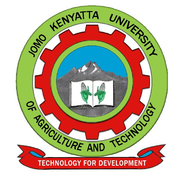
W1-2-60-1-6
JOMO KENYATTA UNIVERSITY
OF
AGRICULTURE AND TECHNOLOGY
University Examinations 2014/2015
FIRST YEAR SECOND SEMESTER EXAMINATION FOR THE DEGREE OF MASTER OF SCIENCE IN HUMAN RESOURCE MANAGEMENT
MHR 3104: MANAGEMENT OF PERFORMANCE AND REWARD
DATE: AUGUST 2014 TIME: 3 HOURS
INSTRUCTIONS: ANSWER QUESTION ONE (COMPULSORY) AND ANY OTHER THREE QUESTIONS
Question One (40 Marks)
“Any time employees are grieving over rewards, their complaints are anchored on various needs that can be explained by various theories of reward”, began Dr. Mawazo in his address to Senior Human Resource Managers attending a Performance and Reward Workshop at Safari Hotel. “It is therefore incumbent upon the management to understand these theories and relate them to situations facing their organizations so that they can avoid strikes that may result. We are therefore here to explore these theories gain an understanding on how to effectively manage rewards”. He concluded:
Required:
a) With reference to economic theories of rewards, explain how Dr. Mawazo’s comments are valid giving examples from an organization of your choice. (20 Marks)
b) “Employees can expect genuine rewards for their contribution to the organization if the firm ensures it adheres to placing a great premium to the underlying principles guiding reward management”. Validate this statement. (10 Marks)
Question Two (15 Marks)
a) With suitable examples, build a case for performance management in organizations. (10 Marks)
b) Explain how employee performance may be gauged in organizations. (5 Marks)
Question Three (15 Marks)
a) It is not easy to maintain executives and international employees since given their qualifications, experience and exposure, their turnover may be high. Critically examine how a firm may reduce such turnover intentions. (10 Marks)
b) What drawbacks may face a firm in its quest to link employee rewards to performance? (5 Marks)
Question Four (15 Marks)
a) The Employee rewards regime in Kenya is governed by various laws. With relevant examples, discuss the legislative framework guiding rewards in the country. (10 Marks)
b) Explain the major components of reward policies in business firms. (5 Marks)
